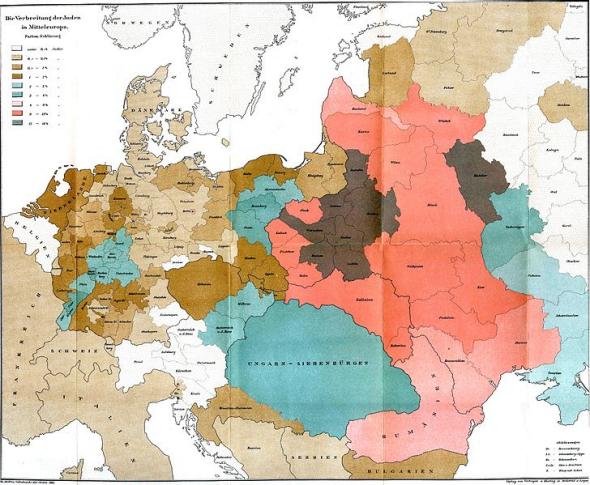Let me give you an example from the book. In the second half of the book R’ Sacks takes a few episodes in Braishis, e.g. Avraham’s banishment of Yismael, Ya’akov’s conflict with Eisav, Yosef’s conflict with his brothers, and he argues that these stories have been misunderstood. Rather than a rejection of the unwanted son/brother, the intent of the Bible is to flip the traditional storyline on its head and actually validate the “other” brother/son/outsider. In G-d’s eyes, everyone has value and no one is rejected. He goes so far as to read the opening of Vayishlach, where Ya’akov sends gifts to Eisav, as a sort of attempt to return the bounty of the brachos, an acknowledgement that maybe the stolen brachos should rightfully have been given to Eisav after all. Read in this way, as validating the “other,” religion becomes a force that unites people, rather than a divisive force that can lead to violence.
I thought I was maybe missing something, so I told this derasha to my son and asked him if there is anything that strikes him as odd. He immediately quoted the pasuk in Malachi, “…v’es Eisav saneisi?” (1:3) How can you think that Eisav is validated? I would have thought that what seems to be a mefurash pasuk against your thesis deserves a mention in the text, but R’ Sacks addresses it only in a footnote to the chapter at the back of the book. His answer is that the navi was speaking about a particular time where there were particular difficulties, but this is not to be taken as a general rule or a normative statement. Putting aside the fact that were an reaction to a particular situation and not a nevu’ah she’hutzrecha l’doros it would never have been written, I think the more basic issue is how do you know what is the rule and what is the exception? How do you know that your derasha on Braishis represents the TRUTH, the categorical rule, and the pasuk in Malachi is the exception? Maybe it’s the other way around? It seems to me at least that Eisav has been historically seen as a bad guy who should be avoided at all costs. Halacha hi she’Eisav sonei Ya’akov. K’she’zeh kam zeh nofeil. The Derashos haRan uses this very pasuk in Malachi as a springboard to argue that the conflict between Eisav and Ya’akov is inherent in their (our) nature, not just a product of circumstance. The two sides can never share common ground. R’ Sacks is not bound to adopt the view of the Ran, but I would have liked to see how he it. A nice derasha is no more than that – a nice derasha. Whether it reflects the majority view of ba’alei mesorah and Jewish philosophers is unproven.
One other quick point: I think the whole argument of the book is academic. Until someone in the camp of Yishmael of similar renown to R’ Sacks starts making these same arguments, there is nothing to talk about. To preach peace and tolerance while your enemies plot your destruction is does not make any sense to me.
There is much more to say about the book… maybe one day I get back to it.

